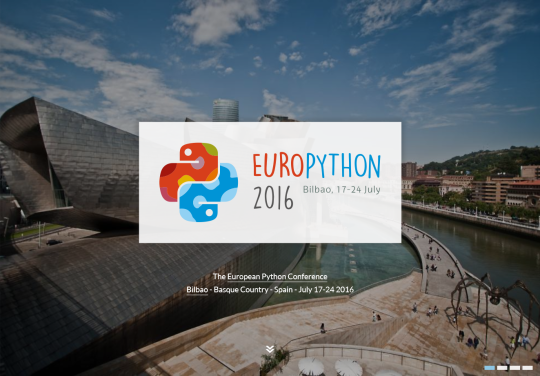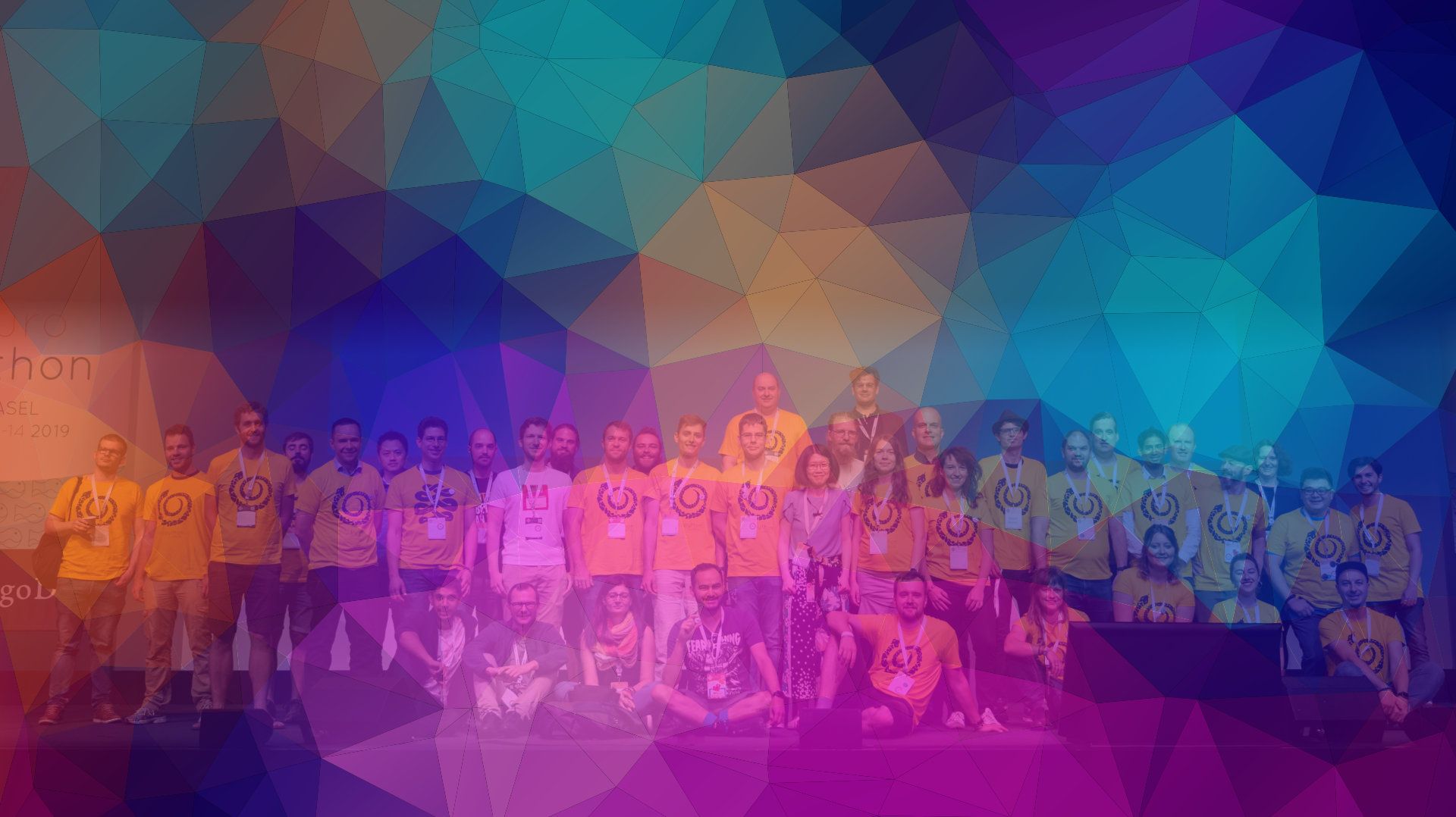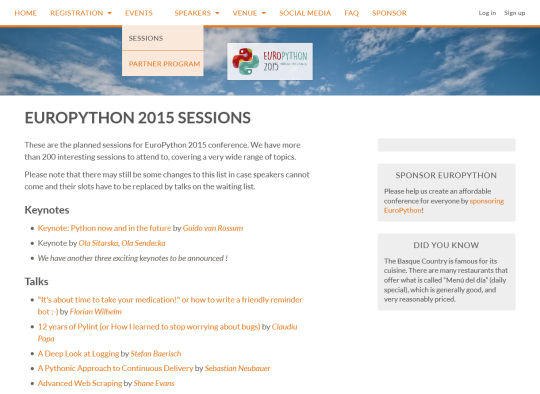At this year’s General Assembly we will vote in a new board of the EuroPython Society.
List of Board Candidates
The EPS bylaws
require one chair and 2 - 6 board members. The following candidates have stated their willingness to work on the EPS board. We are presenting them here (in alphabetical order).
Borja Ayerdi
PhD Student / Co-Founder and CEO of Neurita / Treasurer
Borja
is a PhD student in the University of the Basque Country. He has a
degree in Information Engineering of the same university. His PhD thesis
is focused in several areas of machine learning applications to image
processing, including aortic and brain imaging as well as hyperspectral
satellite imaging. He uses Python for his research projects.
He
is a co-founder and the treasurer of the non-profit Python San
Sebastian society (ACPySS). With the local community he is co-organizer
of Python San Sebastian Conference Series. He is member of the
EuroPython 2015 core organization team. He loves the social interaction
and the community.
Oier Echaniz Beneitez
PhD Student / Consultant / Chair of ACPySS
Oier
currently is a PhD Student in the University of the Basque Country. He
has a degree in Information Engineering from the same university. His
PhD is focused in medical imaging, cancer diagnosis and machine
learning. He uses Python in his daily programming projects. He is also
co-founder and chair of the Python San Sebastian society (ACPySS), a
non-profit organization involved in the use of Python, Free Software and
Technology in business and education. With the local community he
co-organized a Software Carpentry and is co-organizer in the Python San
Sebastian conference series. He is member of the EuroPython 2015 core
organization team. He is also promotor of a local project Asmatu
Intelligent Solutions, where he works as data analyst consultant.
In
his leisure time he helps as an IT expert in a non-profit organization
called ASPANOGI. This organization takes care of children with cancer,
teaching them computer science and providing them tools and machines
where they can play during hospitalization.
Dr. Darya Chyzhyk
PhD/ Python programming enthusiastic for research and science
Currently, Darya is a Post-Doc at the University of Florida, USA. She has a
degree in applied mathematics and defended her thesis in computer science.
Last 7 years Darya has been working on computer aided diagnostic computer
systems for brain diseases at the University of the Basque Country, Spain
and she is a member of of the Computational Intelligence Group since 2009.
Her aim is to develop computational methods for brain MRI processing and
analysis, including open sours tools, that help to the medical people in
their specific pathologies research studies.
She has experience in International Conference organization and take part
in the events for the teenagers and kids such as Week of science.
Participant in more than 10 international science conference, trainings and
summer courses.
Board member of Python San Sebastian Society (ACPySS) and on-site team of
EuroPython 2015.
Marc-André Lemburg
Pythonista / CEO / Coach / Consultant
Marc-Andre
is the CEO and founder of eGenix.com, a Python-focused project and
consulting company based in Germany. He has a degree in mathematics from
the University of Düsseldorf. His work with and for Python started in
Winter 1993/1994. He became Python Core Developer in 1997. In 1999, he
designed and implemented the Unicode support in Python and continued to maintain the Python Unicode implementation for more than a decade. Marc-Andre is a founding member of the Python Software Foundation (PSF) and has served on the PSF Board several times. He is the author of the well-known Python “mx” Extensions, e.g. mxTextTools, mxDateTime and mxODBC, which are now distributed and maintained through eGenix.com.
In 2002, Marc-Andre was on the executive committee to run the first EuroPython conference in Charleroi, Belgium. He also co-organized the second EuroPython 2003
conference. Since then, he has attended every single EuroPython
conference and continued being involved in the workings of the
conference organization.
In 2012, he was elected as board member of the EuroPython Society
(EPS). He enjoyed the
last few years working with the EPS board members on steering the
EuroPython conference to the new EuroPython Workgroup structures and believes that
the new model will make it possible to sustain the continued growth
while maintaining the EuroPython spirit and fun aspect of the
conference.
For the 2015 edition, Marc-Andre chaired the EuroPython Admin WG and Communications WG. He set up the internal EuroPython organization wiki,
most of the EuroPython and EPS accounts and mailing lists, managed the
WG member accounts, EPS member accounts, helped setting up and running
the EuroPython 2015 website and the pre-launch site before that, the EuroPython Guidebook, running the conference budget, and a gazillion smaller things needed for the conference.
Going forward, he would like to continue the transition process of the EPS and prepare it for a bright future.
Anthon van der Neut
Consultant / Software Engineering Manager
He has been working with Python on a professional basis since 1998,
after having been introduced to the language a few years earlier while
working in Amsterdam. Since 2007 he maintains the C implementation of OrderedDict
he developed, used by those pythonistas for whom a Pure Python
implementation is not fast enough. He has spoken at and visited PyCon
and visited several EuroPythons after moving back to Europe.
He has managed software development in companies across 3 continents,
primarily oriented at 3D resp. 2D computer graphics and media
management software. This included managing the Commotion development
team, then used at ILM for rotoscoping Star Wars episodes I-III.
He was quaestor on the board of the student society Augustinus
while studying Mathematics, Japanese and Linguistics in Leiden. He was
founding chairman of the Dutch 68000 user group (back in 1984 when that
processor was state-of-the-art) and published about his work on how to
hook up a floating point coprocessor in his Atari ST, as well as on how
to adapt the libraries of Modula-2 to use it.
More recently he has managed the website and member administration of his local karate-club.
When not working on Python, but still at the computer, he can be found answering questions on the Unix & Linux resp. Ebooks StackExchange sites, or refreshing his math skills at Khan Academy where he is one of the few to hold the coveted Tesla badge.
When detached from his keyboard, he can be found cooking for his teenage daughter or practising karate.
He joined the EPS as he likes to work with like minded people in a
multicultural environment promoting his favourite programming language.
Fabio Pliger
Software Engineer / Trainer / Consultant
Fabio currently works as a software engineer, trainer and consultant.
He has a degree in Computer Science from the University of Verona,
Italy. Has started working with Python on a professional basis since
2003 building different kind of tools and projects mainly for
pharmaceutical companies. In 2007, he co-founded his own software and
consulting company focused at the pharmaceutical industry market, that
he left in 2013.
He has been the chairman of the board of the EuroPython Society since
2012 trying to help the Society maintain the series of successful
conference, improve it’s interaction with the community, scale as
numbers grow and keep the Conference spirit of fun, openness and respect
that is a deep trait of the EuroPython conference. He has been a
co-organizer of the EuroPython Conference series for the 2011, 2012 and
2013 editions in Florence.
In 2007, he co-founded the Python Italia Association, a non-profit
organization devoted to advance open source technology related to the
Python programming language in Italy. As result of this he has been a
co-organizer of the PyCon Italia conference in 2007, 2008, 2009, 2010
and 2014.
He joined the EPS because he loves the social interaction, community and to help promote his favorite programming language.
Outside the Python community Fabio loves to spend time with his family, friends, cooking and traveling.
Dr. Alexandre Manhaes Savio
Pythonista / PhD / Co-Founder and CTO / Trainer / Spokesperson
Alex
has a PostDoc position in the University of Wroclaw, he is an expert
working with Neuroimaging. He has a PhD and degree in Information
Engineering in the University of the Basque Country. In the university
he is a member of the Computational Intelligence Group, where he
participated in the organization of 4 scientific conferences. He is core
developer of medical image tools which are popular in the computer
Science Faculty of the University of the Basque Country in San
Sebastian. His interests are oriented to medical imaging and computer
vision applications, computer clusters administration and
high-performance computing.
He is the most veteran Python user in
the Python San Sebastian society (ACPySS), he is also a co-founder and
the spokesperson in this non-profit organization. With the local
community he organized trainings for beginners and intermediate Python
users, Software Carpentries and is co-organizer of Python San Sebastian
Conference Series. He is member of the EuroPython 2015 core organization
team.
Vicky Twomey-Lee
Software Engineer / Tech event Organiser
She currently organises Python Ireland monthly events as well as
being on its committee. She was the chair of PyCon Ireland from 2010 to
2013.
She is now involved in diversity initiatives in Python and PyCon Ireland, founded PyLadies Dublin
which launched in October 2013 during PyCon Ireland, and is currently
organiser of its monthly meetups. Vicky has been a member of PSF since
2012.
She joined EPS as board member to learn about and help local organisers to run EuroPython.
Outside of Python community, she organises female-friendly adult workshops to encourage diversity in the tech area via Coding Grace
which she co-founded with other developers based in Dublin, Ireland.
She also co-founded and co-organise community game jams called Global GameCraft
bringing game enthusiasts, hobbyists, developers as well as those in
the games industry (big and small) to make games in one day, play each
others games at the end of it and make new connections.
Want to run as candidate ?
More candidates from the EPS membership are welcome. Please write to board@europython-society.org to get your name added to the list of candidates. We will keep this posting updated with all new candidates.
What does the EPS Board do ?
The EPS board runs the day-to-day business of the EuroPython Society.
It is allowed to enter contracts for the society and handle any issues
that have not been otherwise regulated in the bylaws or by the General
Assembly. Most business is handled by email on the board mailing list,
board meetings are usually run as conference calls.
Board members are generally expected to take on leadership roles within the EuroPython Workgroups.
Enjoy,
–
EuroPython Society



